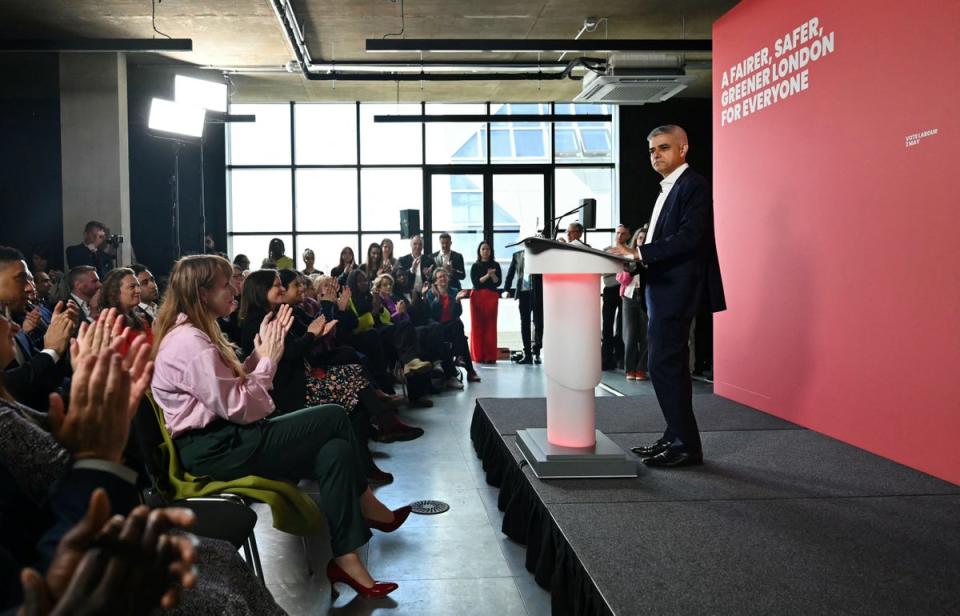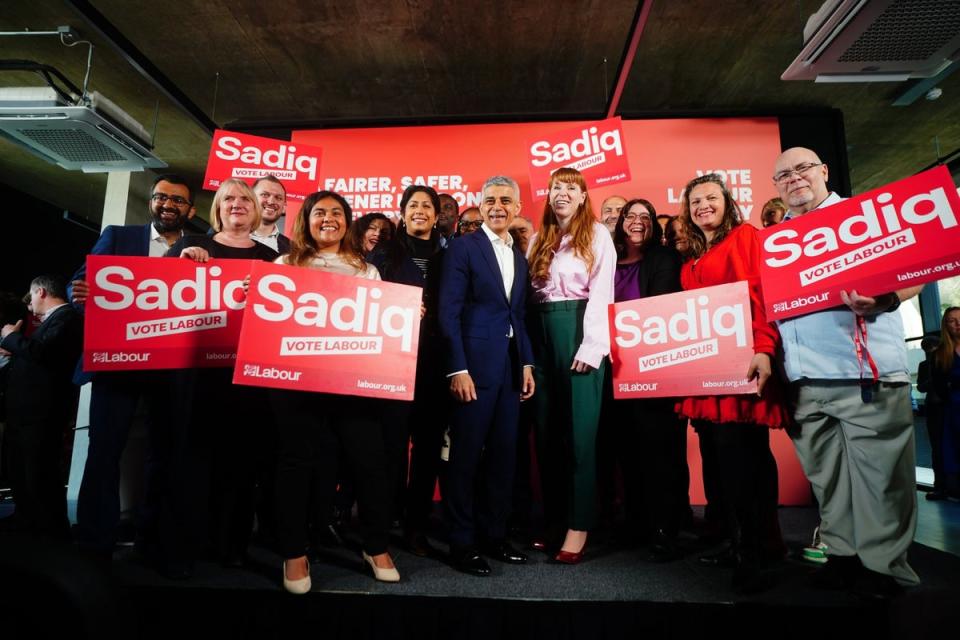Sadiq Khan pledges London Olympics bid and rules out road charging as he launches mayoral election manifesto
Sadiq Khan has vowed to rule out introducing “any form of pay-per-mile smart road user charging system” as he set out his plans for a third term at City Hall.
He also pledged to continue his partial Tube and bus fares freeze “as long as economic conditions allow” and to try to bring the Olympics back to London in 2040.
However he previously said he wanted the Olympics to return to London in 2036 and that came to nothing.
The Labour mayor used his 2024 manifesto, which he launched on Thursday, to attempt to shut down Tory claims that motorists face a new levy to drive in London if he wins a third term in a fortnight.
The row has raged since he mentioned road pricing in his book, Breathe, published a year ago and after Transport for London began work on its future road charging systems as it looks up upgrade the “back office” technology required for the Ulez and congestion charge.
The manifesto, unveiled at an event in North Greenwich in which he was accompanied by under-fire Labour deputy leader Angela Rayner, includes plans for a “second Superloop” route of express buses in outer London.


There will be “increased funding” for healthy streets to improve safety for cyclists and pedestrians – though no figure is given, and funding has fallen since the pandemic.
He will push the Government to fund the full reopening of Hammersmith bridge to vehicles, despite having failed to do so since it closed five years ago.
Transport for London will upgrade its ticketing technology to enable Londoners with 60+ Oysters and Freedom passes - and potentially children with Zip cards - to be able to have the concessions stored on their smartphones, removing the need to carry a separate Oyster card.
Mr Khan’s centrepiece proposal is to continue offering free school meals to all London primary school children for a further four years – though, strangely, his manifesto only pledges to “work to make universal free schools meals permanent”. The policy costs £140m a year.
Mr Khan said he would continue “to oppose any expansion of airports in London” – which puts the dampeners on a third runway at Heathrow or more flights at City airport – but would not prevent Gatwick opening a second runway as it is in West Sussex, not London.
On cycling, Mr Khan said he wanted the “huge boom” in the number of people cycling in London – there are about 1.3m trips each weekday by bike – to continue, without setting a target.
He said: “I commit to increasing the current investment in walking and cycling infrastructure and working with TfL and London’s boroughs to further expand our cycling and walking network so that we can enable even more Londoners to get around on bike and foot.”
He promised “more than 40,000 new bike parking spaces” on high streets and in schools, stations and residential areas by 2030.
In addition, he will lobby for better Government regulation of lithium-ion battery powered e-bikes and e-scooters to reduce the risk of fatal fires.
He said he would “push to deliver” the Bakerloo Line extension, West London Orbital and DLR to Thamesmead and safeguard Crossrail 2 route. However, without Government funding, none of these projects are likely to become reality.
He promised that “half the Tube” will be step-free by 2030. At present 92 of the 270 stations are step-free.
He said he remained committed to his Vision Zero policy of eradicating road deaths by 2041 – though TfL data shows efforts have stalled.
“Increased funding for healthy streets will enable TfL and boroughs to improve safety at more junctions, including upgrading and improving crossings for people walking and wheeling around the city,” his manifesto said.
Mr Khan said he was committed to restoring Crystal Palace national sports centre to its former glory.
He wrote: “I will complete its renovation, turning it into Britain’s first zero carbon major sports centre, and I’ll also work with partners to deliver the restoration of the famous Crystal Palace athletics stadium.”


